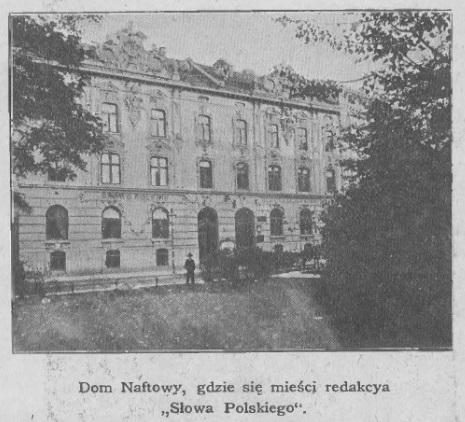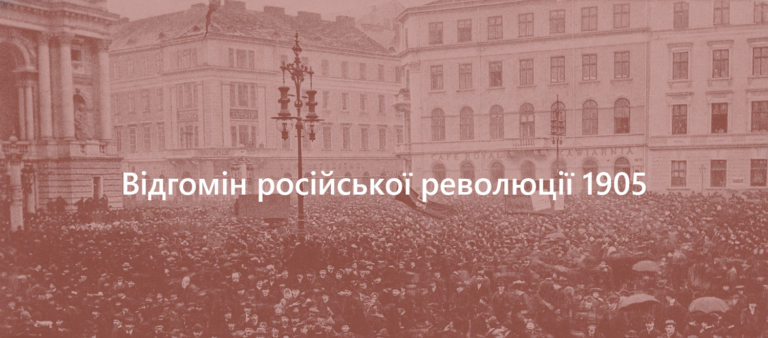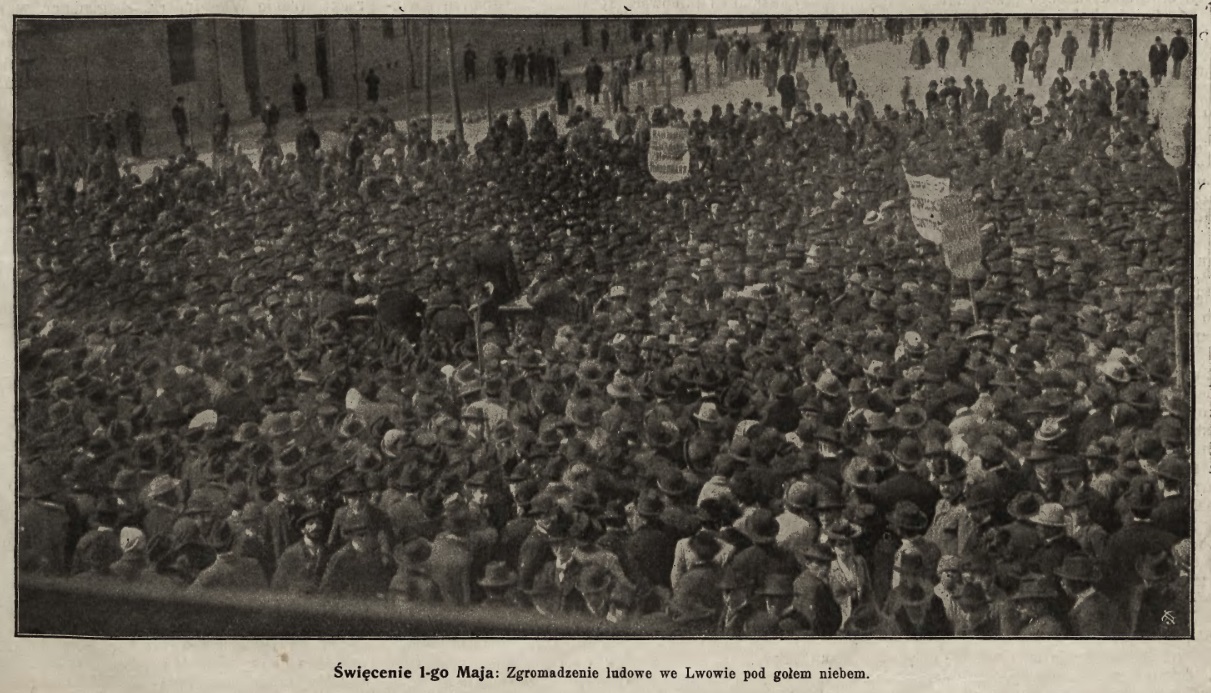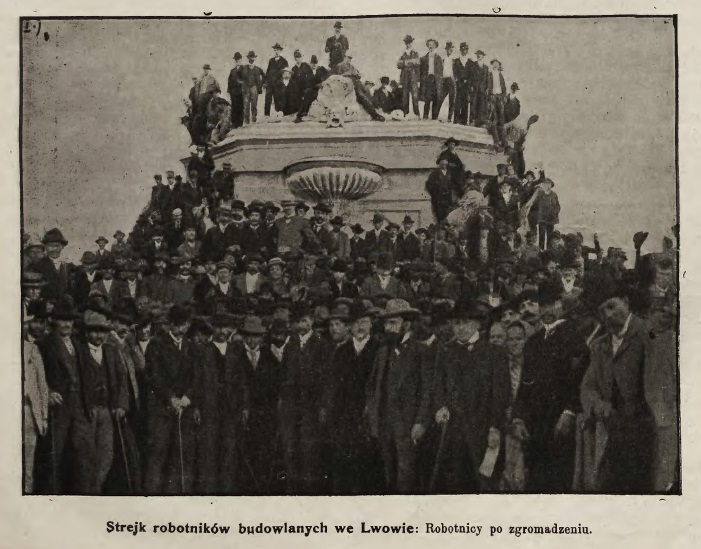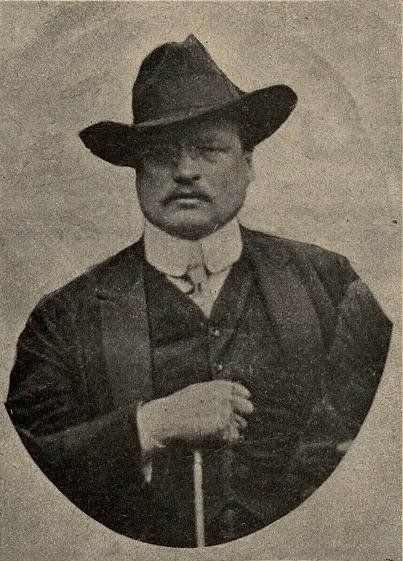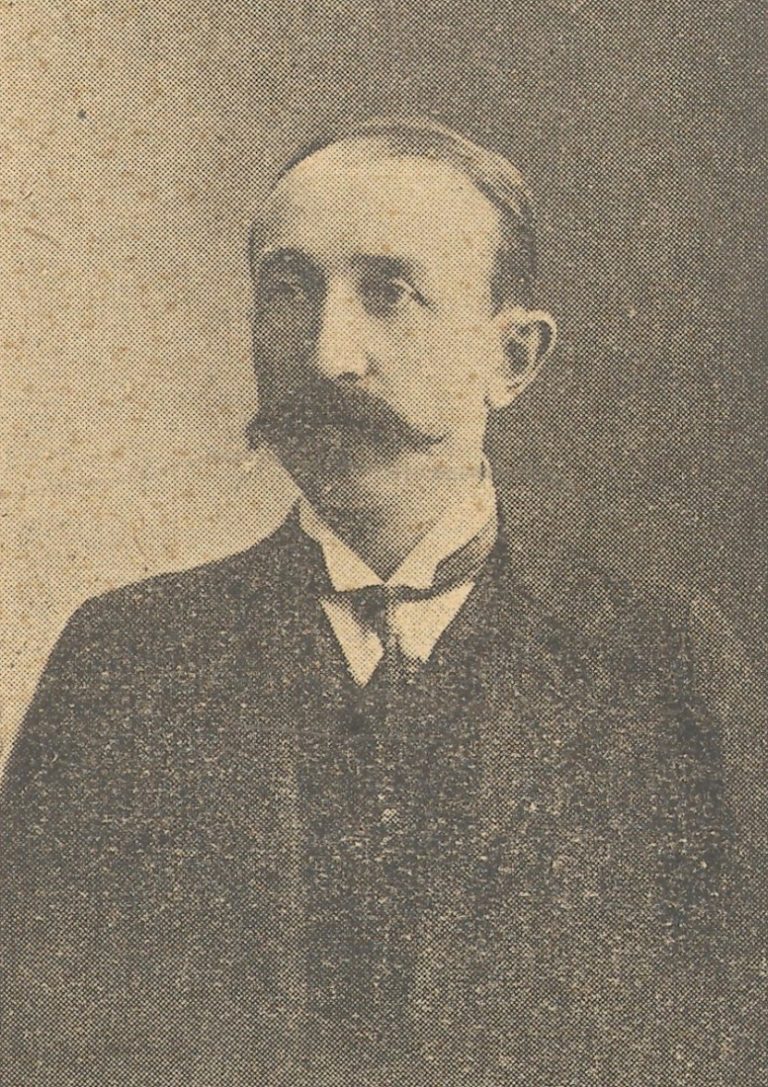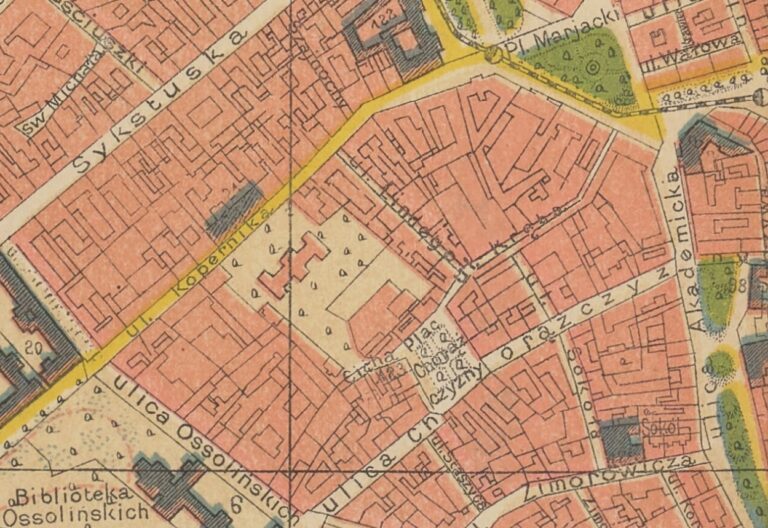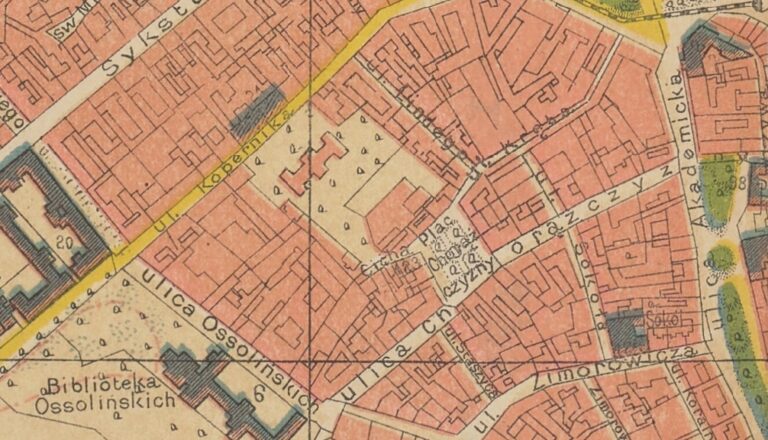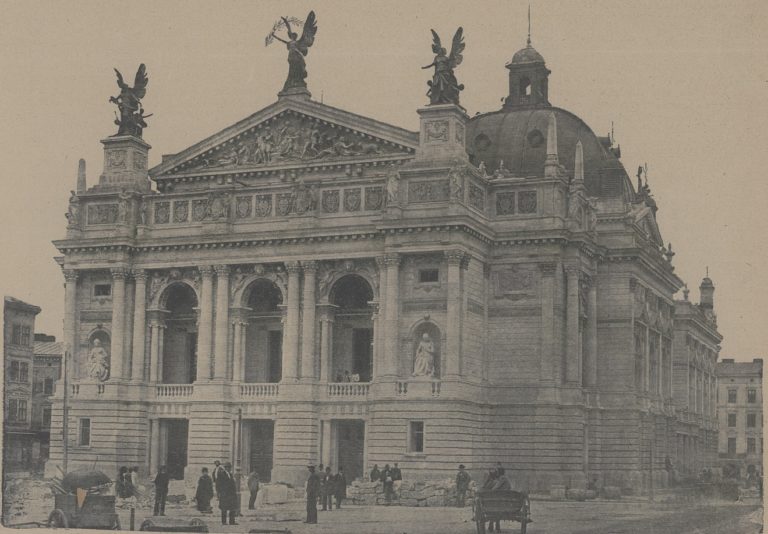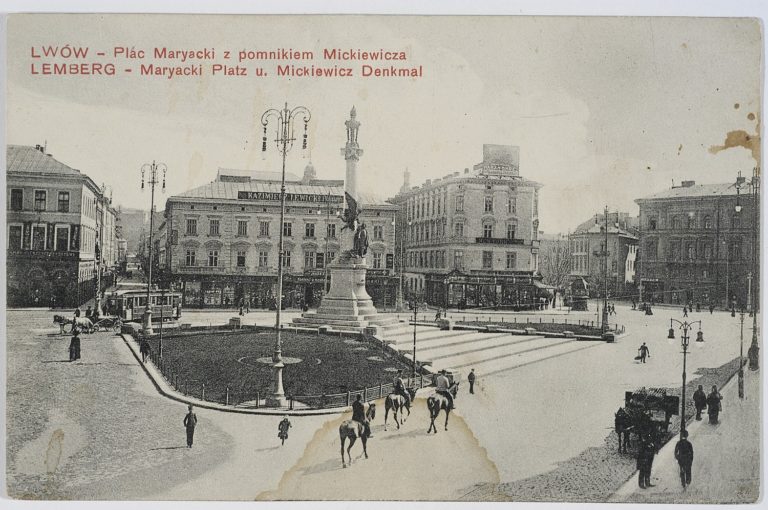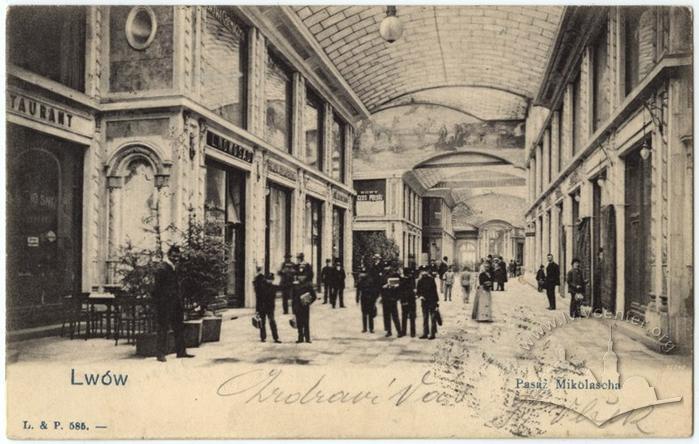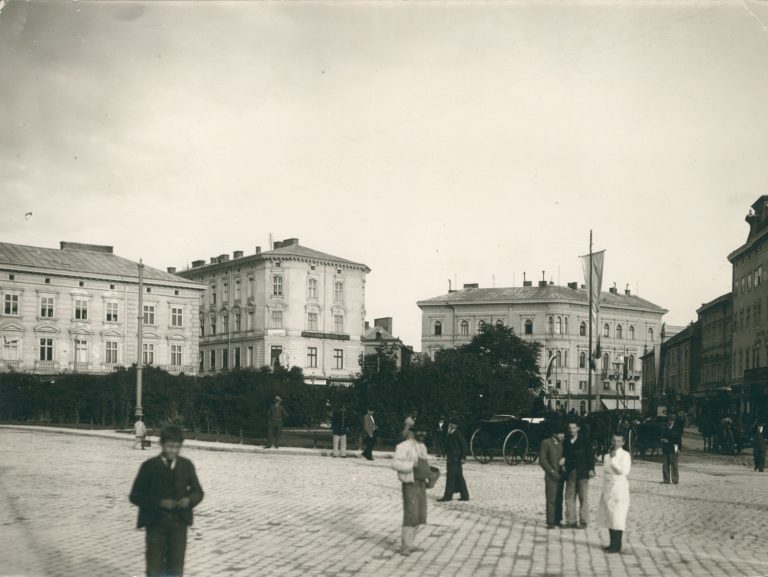A demonstration organized by social democrats on Sunday, July 9, 1905, could have been considered another act of solidarity with the workers of the Kingdom of Poland in the Russian Empire, where a revolution was going on, but for several important aspects. Firstly, the demonstration took place on the eve of the construction workers' strike, when it was already clear that an understanding with the employers had failed. Secondly, during the rally, one of the activists who once again decided to destroy the kiosk of the newspaper Słowo Polskie was wounded with a revolver. Thirdly, this is a good illustration of what was called "socialist terror" by this periodical.
The course of the event
The official reason for holding a rally near the monument to Adam Mickiewicz was to express support for striking workers "abroad", that is, in the Kingdom of Poland, as well as indignation against those who "served the tsarist regime", that is, nationalist democrats, in particular the editors of the Słowo Polskie, a newspaper, which criticized both the actions of the left-wing activists in Lviv and the revolution in Russia.
Around 11:30, when the rally had just started on pl. Mariacki, a group of young men decided to break the windows of the Słowo Polskie kiosk in the Mikolasza passage. In this way, they wanted to express their disagreement with the newspaper’s position regarding the revolution in the Kingdom. However, they had to flee after someone started shooting at them with a revolver. A total of 4 shots were fired, one of the attackers was wounded in his leg.
At the time when Mykola Hankevych was speaking to the crowd near the monument to Mickiewicz, a carriage carrying the wounded young man appeared on pl. Mariacki. Incidentally, it was just from the Russian Empire that the man had come to Lviv. The rally participants started shouting "Blood for blood!" and were ready to rush to the Mikolasza passage. However, Mykola Hankevych managed to dissuade them from this venture, and quite in time, because the police were already waiting there.
Shouting "Down with the tsarist regime! Long live free independent Poland! Long live free independent Ruthenia-Ukraine!" (in Polish), the demonstrators marched to the City Theater, where Semen Vityk and Mykola Hankevych spoke again. The latter once again urged not to "spoil the solemn minute by clarifying the relationship with the tsarist regime servants", but a small part of the demonstrators still went there and saw police units near the editorial office and in the Mikolasza passage.
The rally ended, but conflicts went on. Someone threw a stone at a policeman on ul. Chorąszczyzny near the Słowo Polskie editorial office and was chased by the foot and mounted police along ul. Linde. In the afternoon, pl. Dąbrowskiego, ul. Chorąszczyzny and nearby streets (near the editorial office) were thoroughly patrolled by mounted and foot policemen. They did not allow the groups to stand in the area and constantly asked them to disperse. A mounted policeman chased a demonstrator all the way to the City ("Post-Jesuit") Park, where he already drew his saber out to strike, but the pursued man managed to dodge and run away.
Around 18:00, the demonstrators finally succeeded in devastating the hated newspaper kiosk in the Mikolasza passage; this time, however, they made sure that no one touched any books or newspapers, probably, to avoid accusations of theft.
Versions
Initially, a version circulated in the press that the wounded man was shot by the Słowo Polskie administrator. Later, they started talking about an ordinary employee. According to the version of the newspaper itself, at first one of the attackers on the kiosk was detained by the employees, and when the rest tried to take him back, the shots rang out.
The government-run newspaper Gazeta Lwowska only briefly mentioned the attack of 30 students on the newspaper kiosk (and not “around a dozen”, as other newspapers reported), the shooting and the wounded man. In general, the number of the participants in the rally near the Mickiewicz monument was estimated at 600 people, who for the most part safely walked from pl. Mariacki to the City Theater singing "The Red Flag" ("Czerwony sztandar") and then went home.
Criticism
The Słowo Polskie considered the attack on the kiosk a well-planned provocation. After all, it not only happened simultaneously with the rally that was going on just a few tens of meters away. Allegedly, the wounded young man was specially taken to the demonstrators with shouts "Comrades, workers' blood has been spilled!" On the stones thrown by the attackers at the kiosk's windows the words "P.P.S." (Polska Partya Socyalistyczna) and "Down with the Black Hundred" ("Precz czarną sotnią") were supposedly scrawled. So, as in the Kingdom of Poland, the newspaper reported, socialists forced others to participate in their demonstrations and strikes or at least remain silent through terror. In Warsaw, the journalists claimed, it was even more difficult for the opponents of the socialists, because ideological beliefs did not allow the victims of terror to ask for help from the police.
Criticism on the part of Ukrainian populists, as usual, concerned the national question. In particular, the Dilo drew attention to the fact that Ukrainians Vityk and Hankevych delivered their speeches, and even the slogan "Long live a free and independent Ruthenia-Ukraine", in Polish.
Consequences
As a result of Sunday's demonstration, the construction workers' strike began on Monday with attacks on the editorial office and kiosks of the Słowo Polskie. Later, information about the strikers came to the fore.
The confrontation between social democrats and the national democrats from the Słowo Polskie did not cease. Supporters of socialists put pressure on the owners of coffee shops to cancel the subscription to this newspaper and not to place it in their establishments. Some newsstands, fearing similar devastation, stopped selling the Słowo Polskie. Their owners can be understood if we take into account that the striking construction workers led by social democrats marched into the city center almost every day.
Meanwhile, nationalist students (supporters of national democrats) decided to organize a "guard" to physically protect the kiosks, which were anyway heavily guarded by the police. Thus, the youth actively joined the street confrontation: nationalist students sold the Słowo Polskie from kiosks with broken windows, while socialist students threw stones and soot at them.
